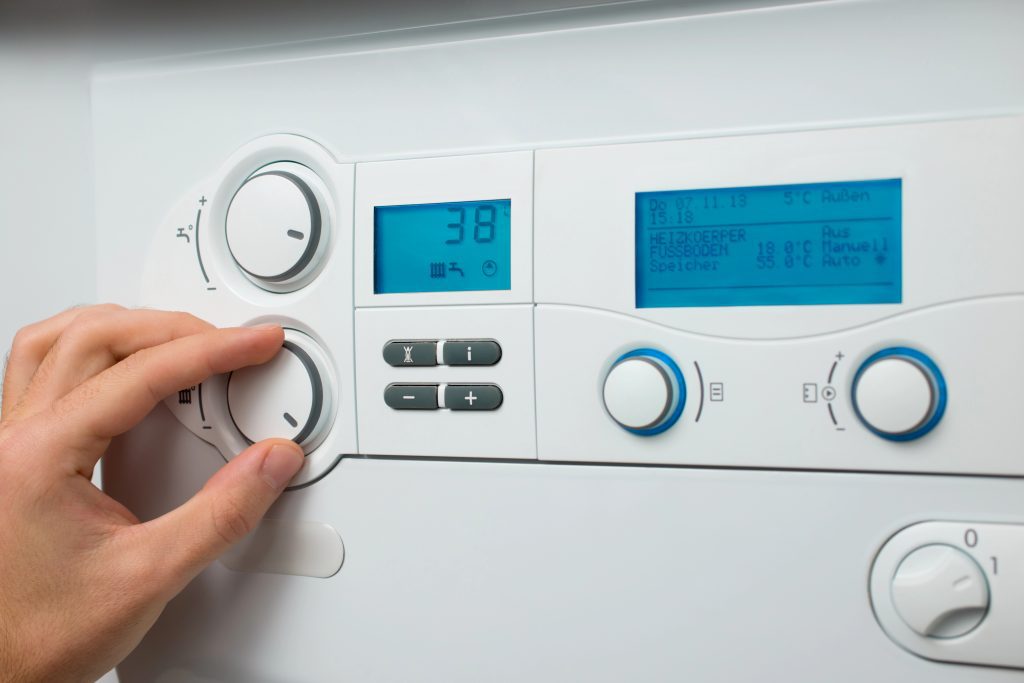Residential boilers are an essential component of many homes, providing heat and hot water throughout the year. They are especially important during the colder months when homeowners rely on them to keep their homes warm and comfortable. In this article, we will explore the different types of residential boilers available, including gas, oil, electric, combi, condensing, and eco-friendly boilers. We will discuss how each type works, their advantages, and which one may be the best fit for your home.
Key Takeaways
- Residential boilers are used to heat homes and provide hot water.
- There are three main types of residential boilers: gas, oil, and electric.
- Gas boilers are the most popular type of residential boiler due to their efficiency and affordability.
- Oil boilers are a good option for homes without access to natural gas, but they require more maintenance.
- Combi boilers are a space-saving option that provide both heating and hot water, but may not be suitable for larger homes.
What is a Residential Boiler?
A residential boiler is a heating system that uses water or steam to distribute heat throughout a home. It consists of a boiler unit that heats the water or steam and a network of pipes that carry the heated water or steam to radiators, baseboard heaters, or radiant floor systems. The heat is then transferred from these devices to the surrounding air, warming up the entire space.
It’s important to note that a boiler is different from a furnace. While both systems provide heat for a home, a furnace uses air to distribute heat, while a boiler uses water or steam. This distinction is important because it affects how the heat is distributed and can impact energy efficiency and comfort levels in the home.
Types of Residential Boilers
There are several types of residential boilers available on the market today. The type of boiler you choose will depend on your home’s heating needs and fuel source. Let’s take a closer look at each type:
1. Gas Boilers: Gas boilers are one of the most popular choices for homeowners who have access to natural gas. They work by burning natural gas to heat water or produce steam, which is then circulated throughout the home via pipes and radiators. Gas boilers are known for their efficiency and cost-effectiveness, as natural gas tends to be cheaper than other fuel sources.
2. Oil Boilers: Oil boilers are a good option for homeowners who don’t have access to natural gas. They work by burning oil to heat water or produce steam, which is then distributed throughout the home. Oil boilers are known for their reliability and durability, but they do require regular maintenance and can be more expensive to operate compared to gas boilers.
3. Electric Boilers: Electric boilers are a great option for homeowners who don’t want to use fossil fuels. They work by using electricity to heat water or produce steam, which is then circulated throughout the home. Electric boilers are known for their simplicity and ease of installation, but they can be more expensive to operate compared to gas or oil boilers.
Gas Boilers
| Gas Boilers Metrics | Value |
|---|---|
| Efficiency | 90% |
| BTU Output | 80,000 |
| AFUE Rating | 95% |
| Cost | 2,500 |
| Lifespan | 15-20 years |
Gas boilers are a popular choice for homeowners who have access to natural gas. They offer several advantages, including high efficiency, cost-effectiveness, and convenience. Gas boilers work by burning natural gas to heat water or produce steam, which is then distributed throughout the home via pipes and radiators.
One of the main advantages of gas boilers is their high efficiency. Modern gas boilers are designed to be highly efficient, with some models boasting efficiency ratings of over 90%. This means that a large majority of the energy from the natural gas is converted into heat, resulting in lower energy bills and reduced carbon emissions.
Gas boilers are also cost-effective, as natural gas tends to be cheaper than other fuel sources such as oil or electricity. Additionally, gas boilers offer convenience, as they can be easily controlled and adjusted to meet the heating needs of the home.
Oil Boilers
Oil boilers are a good option for homeowners who don’t have access to natural gas. They work by burning oil to heat water or produce steam, which is then distributed throughout the home. Oil boilers offer several advantages, including reliability, durability, and versatility.
One of the main advantages of oil boilers is their reliability. Oil boilers are known for their durability and ability to provide consistent heat even in extreme weather conditions. They are also versatile, as they can be used with different types of fuel oil, including diesel, kerosene, and biofuels.
Oil boilers do require regular maintenance to ensure optimal performance and efficiency. This includes cleaning the burner, inspecting the flue, and checking for any leaks or malfunctions. It’s also important to keep an eye on oil prices, as they can fluctuate and impact the cost of operating an oil boiler.
Electric Boilers

Electric boilers are a good option for homeowners who don’t want to use fossil fuels. They work by using electricity to heat water or produce steam, which is then circulated throughout the home. Electric boilers offer several advantages, including simplicity, ease of installation, and environmental friendliness.
One of the main advantages of electric boilers is their simplicity. Unlike gas or oil boilers, electric boilers do not require a flue or chimney for ventilation. This makes them easier to install and maintain, as there are no exhaust gases or fumes to worry about.
Electric boilers are also environmentally friendly, as they do not produce any emissions or greenhouse gases during operation. This makes them a great option for homeowners who want to reduce their carbon footprint and contribute to a cleaner environment.
It’s important to note that electric boilers can be more expensive to operate compared to gas or oil boilers. Electricity tends to be more expensive than natural gas or oil, which can result in higher energy bills. However, the overall cost will depend on factors such as the size of the home, insulation levels, and heating needs.
Combi Boilers
Combi boilers, also known as combination boilers, are a popular choice for homeowners who want to save space and money. They work by combining a high-efficiency water heater and a central heating boiler into one compact unit. Combi boilers provide both hot water for taps and showers and heat for the home, eliminating the need for a separate water heater.
One of the main advantages of combi boilers is their space-saving design. By combining the functions of a water heater and a central heating boiler, combi boilers take up less space compared to traditional systems. This is especially beneficial for homeowners with limited space or those who want to maximize their living area.
Combi boilers are also cost-effective, as they eliminate the need for a separate water heater. This can result in lower installation costs and reduced energy bills. Additionally, combi boilers provide hot water on demand, which means there is no need to wait for a storage tank to heat up.
Condensing Boilers
Condensing boilers are a good option for homeowners who want to save money on their energy bills. They work by recovering heat from the flue gases that would normally be lost in a non-condensing boiler. This heat is then used to preheat the cold water entering the boiler, resulting in increased efficiency and reduced energy consumption.
One of the main advantages of condensing boilers is their high efficiency. Condensing boilers can achieve efficiency ratings of over 90%, compared to around 70-80% for non-condensing boilers. This means that a large majority of the energy from the fuel is converted into heat, resulting in lower energy bills and reduced carbon emissions.
Condensing boilers also offer improved comfort levels, as they provide a constant supply of hot water at a consistent temperature. This is achieved through advanced controls and modulation technology, which adjust the boiler’s output based on the heating demand.
Eco-Friendly Boilers
Eco-friendly boilers are a good option for homeowners who want to reduce their carbon footprint. They work by using renewable or low-carbon energy sources to generate heat, such as biomass, solar thermal, or heat pumps. Eco-friendly boilers offer several advantages, including reduced carbon emissions, lower energy bills, and eligibility for government incentives.
One of the main advantages of eco-friendly boilers is their reduced carbon emissions. By using renewable or low-carbon energy sources, eco-friendly boilers help to reduce greenhouse gas emissions and combat climate change. This is especially important as the world transitions to a more sustainable and low-carbon future.
Eco-friendly boilers can also help homeowners save money on their energy bills. Renewable energy sources such as biomass, solar thermal, or heat pumps are often cheaper to operate compared to fossil fuels. Additionally, homeowners may be eligible for government incentives or grants for installing eco-friendly boilers, further reducing the cost of installation.
Choosing the Right Boiler for Your Home
Choosing the right boiler for your home is an important decision that should be based on several factors. Here are some tips to help you make the right choice:
1. Consider your home’s size: The size of your home will determine the heating capacity required for your boiler. A professional heating engineer can calculate the heat load of your home and recommend the appropriate size of boiler.
2. Assess your heating needs: Consider how you use hot water and how much heat you require for your home. This will help determine whether a combi boiler or a system boiler is more suitable for your needs.
3. Evaluate your fuel source: Determine whether you have access to natural gas or if you need to consider alternative fuel sources such as oil or electricity. This will impact the type of boiler you choose and its operating costs.
4. Consult with a professional: It’s always a good idea to consult with a professional heating engineer or plumber before making a decision. They can assess your home’s heating needs, recommend the right boiler, and ensure proper installation.
Residential boilers are an essential component of many homes, providing heat and hot water throughout the year. There are several types of residential boilers available, including gas, oil, electric, combi, condensing, and eco-friendly boilers. Each type has its own advantages and considerations, and the right choice will depend on factors such as your home’s size, heating needs, and fuel source. It’s important to consult with a professional to help you choose the right boiler for your home. Upgrading your boiler, especially if it’s old or inefficient, can improve energy efficiency, reduce carbon emissions, and save you money in the long run.
If you’re interested in learning more about residential boiler types, you might also find our article on eco-friendly home and garden practices informative. In it, we discuss simple and easy ways to make a big impact on the environment, such as recycling. Understanding sustainability and being eco-friendly is crucial in today’s world, and this article provides valuable insights. Check it out here.
FAQs
What is a residential boiler?
A residential boiler is a heating system that uses water to generate heat and distribute it throughout a home.
What are the different types of residential boilers?
The different types of residential boilers include gas-fired boilers, oil-fired boilers, electric boilers, and biomass boilers.
What is a gas-fired boiler?
A gas-fired boiler is a type of residential boiler that uses natural gas or propane as its fuel source to heat water and distribute it throughout a home.
What is an oil-fired boiler?
An oil-fired boiler is a type of residential boiler that uses heating oil as its fuel source to heat water and distribute it throughout a home.
What is an electric boiler?
An electric boiler is a type of residential boiler that uses electricity as its fuel source to heat water and distribute it throughout a home.
What is a biomass boiler?
A biomass boiler is a type of residential boiler that uses organic materials, such as wood pellets or chips, as its fuel source to heat water and distribute it throughout a home.
Which type of residential boiler is the most efficient?
The most efficient type of residential boiler depends on various factors, such as the size of the home, the climate, and the availability of fuel sources. Generally, gas-fired boilers tend to be more efficient than oil-fired boilers, while biomass boilers can be highly efficient if the organic materials are sustainably sourced.
What are the benefits of a residential boiler?
The benefits of a residential boiler include energy efficiency, consistent heating, quiet operation, and the ability to provide hot water for showers and other household needs. Additionally, boilers can be used in conjunction with radiant floor heating systems for added comfort and efficiency.


